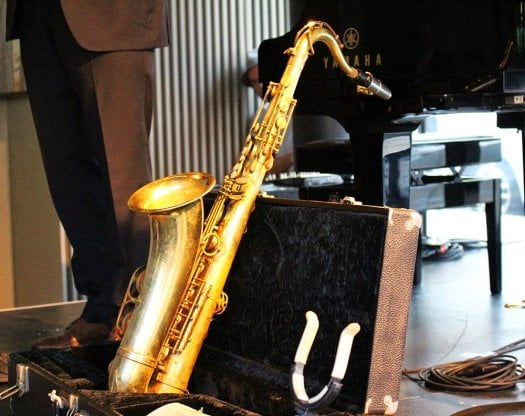A plan to use ‘hostile’ music to clear the homeless from the city’s S-Bahn trains has been forced off the rails by concerned musicians.
When it was announced that atonal music would be played in Berlin’s S-Bahn public rail network to disperse drug users and homeless people, as it considered this form of music “hostile”, I thought it was absurd. I also thought: we can’t just leave it at that. I work at the Initiative Neue Musik – an organisation that champions contemporary music in Berlin.
I knew we had to take a stand against the exploitation of this art form against vulnerable people. We wanted to do it in a humorous way, because you can’t really take the S-Bahn’s idea seriously: so we organised an atonal music concert in protest.
As well as its obvious inhumanity, the plan seriously misrepresented atonal music. First invented at the beginning of the 20th century, it stands for the liberation of tonal hierarchies beyond the eight notes of the traditional octave – and is therefore complex on the ear. As an art form, it deals with the everyday problems of society – so how can it be expected to sound just pleasant? Nobody expects contemporary visual art to be just nice.
Art shouldn’t be weaponised against people. Atonal music was one of the musical forms classified as “Entartete Musik” – degenerate music – by the Nazis and forbidden. After the second world war, a young generation of composers – led by Stockhausen, Boulez and Nono – tried to write in a way that had no link to the Nazi regime, and turned to atonal music. Knowing that makes it all the more problematic to use this music to exclude people from public life.
In just two days, we got together some members of the most important contemporary ensembles in Berlin. Mosaik sent cellist Mathis Mayr and synthesiser player Ernst Surberg, who performed a 2014 piece by Joanna Bailie called Trains, which fitted well. I asked the soprano Sirje Viise because I knew her performances of Julius Eastman’s music – we chose him because, although he worked with some of the most famous minimalists in the 1970s, this African American composer died completely forgotten as a homeless person and drug addict in 1990. Other pieces included Ruth Velten playing a saxophone duet improvisation with Silke Eberhard – we liked the saxophones as they trigger an association with busking.

The concert took place on the street outside the Hermannstrasse station, where the S-Bahn was to pilot its scheme. We didn’t want to do it on the platform and fight against the trains – we wanted to have a friendly protest. It was at 7pm, so people could come after work, and about 300 people turned up. We hoped to attract the homeless people around the station, so we brought food, and it worked: they got to eat, we chatted and they asked if we would do it again, because it was such a nice evening. People were respectful about the music, sitting in the round, really trying to listen in a loud environment. We had buses rushing past, street noise – it went well with the music, as if everything was part of the sound.
The S-Bahn’s manager, Friedemann Kessler, turned up. He listened, and at the end said he hadn’t known what atonal music was and that he had learned something. He decided to drop his plans, so the protest was a success.
We have since been asked if we can do some more concerts in everyday situations. The irony is that we had organised a month of contemporary music, spread across 50 venues in September, as a way of raising the profile of Berlin’s rich contemporary music scene. Our protest garnered more attention than our entire month’s worth of events. So we are really quite grateful to the S-Bahn.

Ruth Verten and Silke Eberhard (right) let rip in the concert outside Hermanstrasse S-Bahn station in Berlin. Photograph: Martin Hufner
https://www.youtube.com/watch?v=Gt9BjqHZCi4






More Stories
CD review: George Benson – Dreams Do Come True: When George Benson Meets Robert Farnon – 2024: Video, CD cover
The band was tight as ever. The Warren Haynes Band cuts loose: Video, Photos
Interview with Alvin Queen: Feeling Good – I heard these tunes played by … Video, new CD cover, Photos